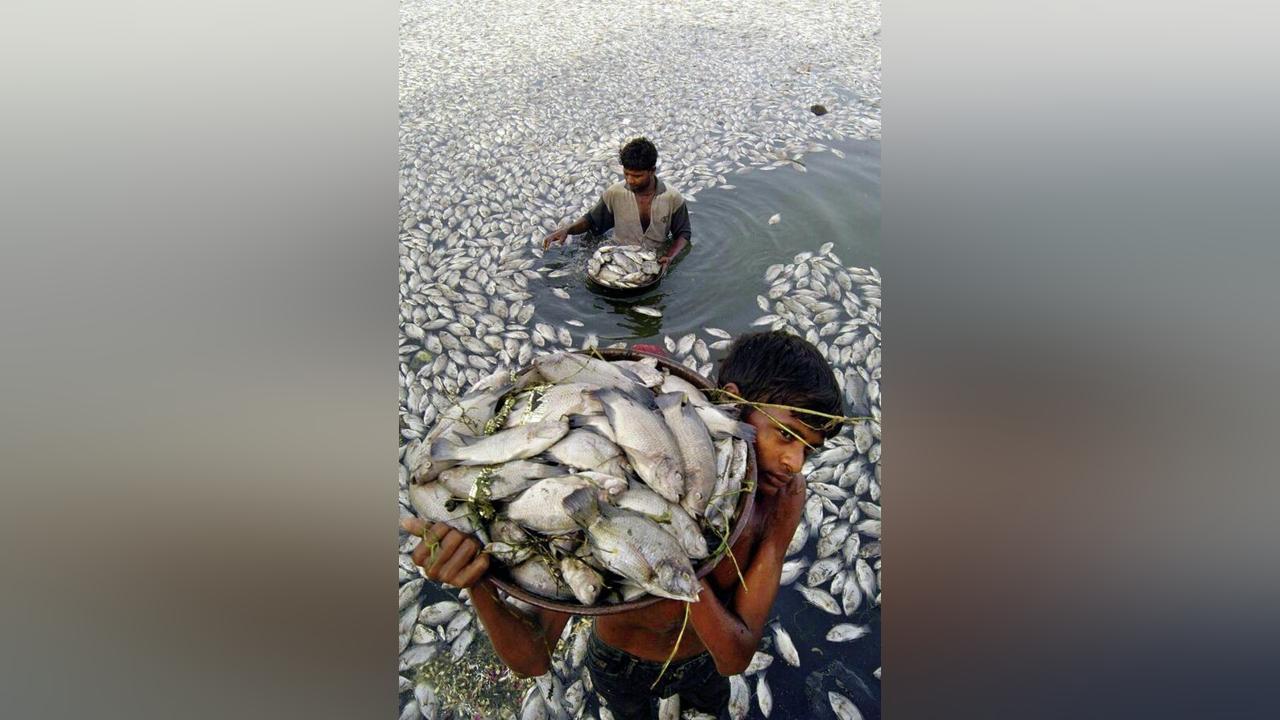Africa-Press – Liberia. Researchers are working on several theories to explain the mass deaths of fish found on the Japanese coast. Thy include the possibility that predators, such as amberjack, relentlessly hunted the migrating species, or that the fish died from rapid sea temperature fluctuations.
Japanese officials are probing an environmental mystery as massive numbers of dead fish, totaling about 1,200 tons, were found on the coastline earlier this month, stretching over a kilometer from the fishing port of Hakodate in Hokkaido.
The bizarre phenomenon was followed by another similar event hundreds of miles south in Nakiri, a Pacific coastal town. There, locals discovered 30 to 40 tons of Japanese-scaled sardines, known locally as sappa, found in the same vicinity some days earlier.
Local fishermen have observed these phenomena with growing alarm and have been collecting the dead fish. They fear the decomposing bodies could deplete the water’s oxygen levels and harm the marine ecosystem.
Mainichi Shimbun, a fisherman who has worked in the area for over two decades, told the press: “I’ve never seen anything like this before. It was only around last year that we began to catch sappa in Nakiri. It makes me wonder if the marine ecosystem is changing.”
Scientists are considering several theories to explain the mass mortality of fish in Japan, including the possibility that migratory species were chased to exhaustion by predators like amberjack or shocked by sudden temperature drops in the water. However, the precise cause is still unknown, and as local fisheries expert Mikine Fujiwara noted, investigations are ongoing, with seawater analyses being conducted to determine the reason behind this phenomenon.
A report by foreign media suggested a link between the fish deaths in Japan and the release of tritium-containing water from the Fukushima Daiichi nuclear plant into the Pacific. But Japanese officials have contested this claim and noted that the International Atomic Energy Agency approved discharge, asserting that the agency’s safety review says the water from the nuclear plant would have “a negligible radiological impact on people and the environment.”
Local fishing communities, particularly in Fukushima, are concerned about potential damage to the reputation of their seafood due to recent mass fish strandings in Japan. Authorities in Hakodate advise against consuming the beached fish because of uncertain health risks, with fisheries researcher Takashi Fujioka emphasizing the unknown causes of these events.
The incidents highlight the intricacies of ecosystems and the difficulty in distinguishing between human influences and natural occurrences, with ongoing investigations into the root causes of these unusual marine events.
For More News And Analysis About Liberia Follow Africa-Press






